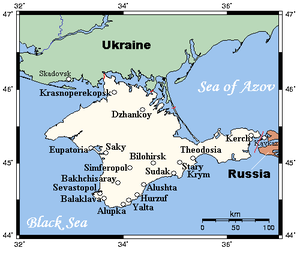One week from today, Crimea will hold a referendum on the issue of secession with the Ukraine, deciding if they will split from the nation, and potentially if they will seek reaccession into the Russian Federation.
 The contentious vote has renewed international debate about whether or not self-rule is a right under international law, though the history of positions from all the major powers suggests that their positions are completely malleable and just a matter of what benefits them at any given time.
The contentious vote has renewed international debate about whether or not self-rule is a right under international law, though the history of positions from all the major powers suggests that their positions are completely malleable and just a matter of what benefits them at any given time.
The West, which has decided in this case Crimea’s self-rule is not in their interest, has taken the position that self-rule is a violation of international law, and that secession votes are only allowed if the regime one’s region is trying to escape from gives them permission.
That’s an historically problematic position for a number of reasons, from America’s own war of secession against a very unwilling Britain to the 1999 secession of Kosovo from Serbia, which Western nations loudly backed.
Russia opposed Kosovar independence, but President Putin argues that Crimea’s referendum is fully in keeping with international norms. He’s not wrong, but the norms suggest that major powers on all sides are cynically reserving self-rule for those they might stand to gain something from.


